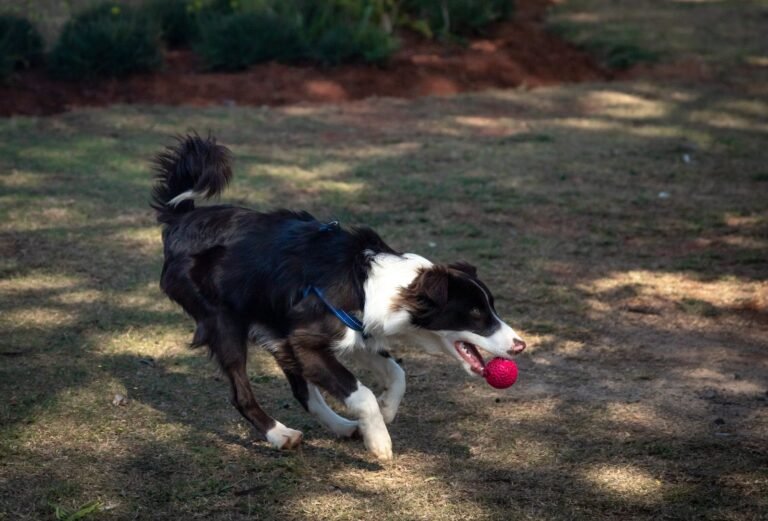Top 10 Foods to Keep Your Border Collie’s Tail Wagging
Border Collies are known for their high energy levels and intelligence, making them one of the most popular breeds for various activities such as herding, agility, and obedience. With their active lifestyle, it is crucial to understand their nutritional needs to ensure they are getting the right balance of nutrients to support their overall health and well-being. A well-balanced diet is essential for maintaining their energy levels, muscle health, shiny coat, and healthy skin. Understanding the specific nutritional needs of Border Collies will help you make informed decisions when it comes to their diet and ensure they are getting the best possible nutrition.
High-Quality Protein Sources for Energy and Muscle Health
Protein is an essential nutrient for Border Collies as it provides the building blocks for muscle growth and repair, as well as energy for their active lifestyle. When choosing a high-quality protein source for your Border Collie, it is important to consider the source and quality of the protein. Look for animal-based proteins such as chicken, turkey, beef, and fish, as they are highly digestible and provide essential amino acids that are crucial for muscle health. Avoid protein sources that are high in fillers and by-products, as they may not provide the same level of nutrition as high-quality animal-based proteins. Additionally, consider incorporating protein-rich supplements such as eggs and cottage cheese into your Border Collie’s diet to ensure they are getting enough protein to support their energy and muscle health.
Essential Fatty Acids for a Shiny Coat and Healthy Skin
Essential fatty acids, such as omega-3 and omega-6, play a crucial role in maintaining a shiny coat and healthy skin for Border Collies. These fatty acids are not produced by the body and must be obtained through their diet. Incorporating sources of essential fatty acids, such as fish oil, flaxseed oil, and chia seeds, into your Border Collie’s diet can help support their skin and coat health. These fatty acids also have anti-inflammatory properties, which can benefit Border Collies with skin conditions such as allergies and dry skin. In addition to supplements, consider including fatty acid-rich foods such as salmon, sardines, and walnuts in their diet to ensure they are getting a well-rounded source of essential fatty acids for optimal skin and coat health.
Complex Carbohydrates for Sustained Energy
Carbohydrates are an important source of energy for Border Collies, especially for their active lifestyle. Complex carbohydrates, such as whole grains, fruits, and vegetables, provide a sustained source of energy that can help support their endurance and stamina. When choosing carbohydrates for your Border Collie, opt for whole grains such as brown rice, quinoa, and oats, as they are rich in fiber and provide a slow release of energy. Additionally, incorporating fruits and vegetables such as sweet potatoes, carrots, and berries into their diet can provide essential vitamins, minerals, and antioxidants that support their overall health. Avoid simple carbohydrates such as white rice and refined sugars, as they can cause spikes in blood sugar levels and may not provide the same sustained energy as complex carbohydrates.
Nutrient-Dense Fruits and Vegetables for Vitamins and Minerals
Incorporating a variety of nutrient-dense fruits and vegetables into your Border Collie’s diet can provide essential vitamins and minerals that support their overall health. Fruits such as apples, bananas, and berries are rich in antioxidants, vitamins, and fiber, which can help support their immune system and digestive health. Vegetables such as spinach, broccoli, and carrots are packed with essential vitamins and minerals such as vitamin A, vitamin C, and potassium, which are important for their overall well-being. When feeding fruits and vegetables to your Border Collie, it is important to ensure they are safe and suitable for their digestive system. Avoid feeding them fruits and vegetables that are toxic to dogs, such as grapes, raisins, and onions, and always consult with your veterinarian if you are unsure about which fruits and vegetables are safe for your Border Collie.
Natural Treats for Training and Bonding
Treats are an important part of training and bonding with your Border Collie, and choosing natural, high-quality treats can provide additional nutritional benefits. When selecting treats for your Border Collie, look for options that are made with real, whole food ingredients and free from artificial additives and preservatives. Natural treats such as freeze-dried liver, dehydrated fruits and vegetables, and meat-based treats can provide essential nutrients and protein while also being delicious and rewarding for your Border Collie. Additionally, consider incorporating homemade treats into their diet, such as homemade peanut butter and banana treats or frozen yogurt and berry treats, to provide a healthy and enjoyable snack for your furry friend.
Hydration and the Importance of Water
Proper hydration is essential for the overall health and well-being of Border Collies, especially for their active lifestyle. Water plays a crucial role in regulating body temperature, aiding digestion, and transporting nutrients throughout the body. It is important to ensure your Border Collie has access to clean, fresh water at all times, especially during and after physical activity. Additionally, consider incorporating wet food into their diet, as it can provide additional moisture and help support their hydration. Monitoring your Border Collie’s water intake and ensuring they are drinking enough water is important for preventing dehydration and supporting their overall health.
Foods to Avoid for Border Collies
While it is important to focus on the foods that are beneficial for your Border Collie, it is equally important to be aware of foods that can be harmful to their health. Certain foods such as chocolate, grapes, raisins, onions, and garlic can be toxic to dogs and should be avoided at all costs. Additionally, foods that are high in fat, sodium, and artificial additives should be limited or avoided, as they can lead to digestive issues, obesity, and other health problems. It is important to be mindful of the ingredients in your Border Collie’s food and treats, and always read labels to ensure they are free from harmful ingredients.
Feeding Schedule and Portion Control
Establishing a feeding schedule and practicing portion control is important for maintaining a healthy weight and preventing obesity in Border Collies. It is recommended to feed adult Border Collies twice a day, once in the morning and once in the evening, to help regulate their energy levels and prevent overeating. When determining portion sizes, consider factors such as age, activity level, and metabolism, and adjust accordingly to ensure they are getting the right amount of food for their individual needs. It is important to monitor their body condition and weight regularly and make adjustments to their feeding schedule and portion sizes as needed to support their overall health and well-being.
Consulting with a Veterinarian for Personalized Nutrition Recommendations
While these general guidelines can help you make informed decisions about your Border Collie’s diet, it is important to consult with a veterinarian for personalized nutrition recommendations. A veterinarian can provide insight into your Border Collie’s specific nutritional needs based on factors such as age, activity level, and any underlying health conditions. They can also recommend specific dietary changes or supplements that may benefit your Border Collie’s overall health and well-being. By working closely with a veterinarian, you can ensure that your Border Collie is getting the best possible nutrition to support their active lifestyle and overall health.








